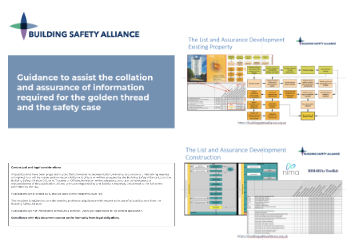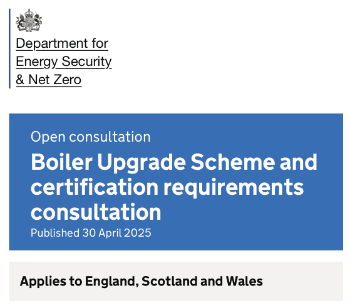Construction (Retention Deposit Schemes) Bill 2017-19
[edit] Introduction
The Construction (Retention Deposit Schemes) Bill 2017-19 is a Private Member’s Bill introduced to Parliament by former charted surveyor Peter Aldous MP on Tuesday 9 January 2018 under the Ten Minute Rule.
Retention is a percentage (often 5%) of the amount certified as due for payment to a contractor that is retained by the client to ensure the contractor properly completes the construction works. Retention clauses may also be imposed on subcontractors.
However, retentions can cause cash flow problems for contractors and subcontractors, and this can be exacerbated by non-payment or late payment.
For more information, see The problems with retention.
On 26 April 2017, Alan Brown MP introduced the Construction Industry (Protection of Cash Retentions) Bill, to prevent this, but it did not progress because of the general election.
In October 2017, the government published the Pye Tait review; Retentions in the Construction Industry, which assessed the costs and benefits of retentions and alternative mechanisms. This was followed by a consultation on 'the practice of cash retention under construction contracts'.
The Construction (Retention Deposit Schemes) Bill 2017-19 proposes making provision for ‘…protecting retention deposits in connection with construction contracts; and for connected purposes’. It would do this by ensuring that retentions are held in a third party trust scheme.
During the first reading of the Bill, Peter Aldous said; “This Bill is relatively straightforward. It would amend the Construction Act to require the Secretary of State to introduce regulations to protect retentions. It would bring closure to the many efforts made in the past to address the problem. In doing so, it would transform the prospects of SMEs, which make up 99% of firms in the UK construction industry.”
The Bill passed its first reading.
[edit] Updates
On 12 March 2018, 60 industry bodies gave their support to the Bill, coordinated by the Building Engineering Services Association (BESA) and the Electrical Contractors Association (ECA).
ECA director of business Paul Reeve said; “Quite simply, the time for major change to retentions is now. Putting retentions in trust would help to protect the supply chain from future upstream insolvency, and it would reduce the amount held in retentions when buyers see that they can no longer use suppliers’ cash to support their own business model.”
However, on 14 March 2018, it was reported that the British Property Federation (BPF) - who had appeared on the list, did not in fact support the Bill. Ian Fletcher, director of real estate policy later clarified; "Our concern with the bill is that reforms must look at a broader range of issues that cover payment, risk and performance obligations throughout the whole supply chain and these are not likely to be covered and fully considered in a 10-minute rule bill."
By April 2018, more than 100 MPs (around 1 in 6 of all MPs) had expressed their support for the 'Aldous Bill', including the Green co-leader Caroline Lucas, the shadow Chancellor John McDonnell, the Conservative MP Ken Clarke, and the Liberal Democrat leader Vince Cable.
On 23 April, a petition supporting the Bill was delivered to 10 Downing Street. (Ref. http://www.constructionmanagermagazine.com/news/petition-demanding-payment-reform-presented-number/)
The Bill can be seen at: https://services.parliament.uk/Bills/2017-19/constructionretentiondepositschemes/documents.html
It proposes amending the Housing Grants, Construction and Regeneration Act 1996 such that any clause in a construction contract which enables a payer to withhold cash retentions shall be of no effect unless the monies are deposited in a retention deposit scheme.
The Bill was originally scheduled for its second reading on 27 April 2018, but this was postponed until 15 June 2018. Rudi Klein, chief executive of the Specialist Engineering Contractor’s Group, one of the organisation’s that helped develop the bill, said the delay gave time for government to consider its position. Other backers have indicated that the focus remains on expanding support and momentum within the industry, parliament and the wider public.
By the end of May 2018, it was reported that the Association of Accounting Technicians (AAT), had become the 80th body supporting the bill, joining a coalition of more than 550,000 companies and self-employed professionals.
In June 2017, the second reading of the Bill was pushed back again to 26 October 2018.
[edit] Related articles on Designing Buildings Wiki
- Campaign for cash retentions reform.
- Certificate of making good defects.
- Construction Act.
- Construction supply chain payment charter.
- Defects liability period.
- Final account.
- Interim certificate.
- Practical completion.
- Retention.
- Retention bond.
- Retention held in trust fund.
- Right to payment.
- The problems with retention.
Featured articles and news
Licensing construction in the UK
As the latest report and proposal to licence builders reaches Parliament.
Building Safety Alliance golden thread guidance
Extensive excel checklist of information with guidance document freely accessible.
Fair Payment Code and other payment initiatives
For fair and late payments, need to work together to add value.
Pre-planning delivery programmes and delay penalties
Proposed for housebuilders in government reform: Speeding Up Build Out.
High street health: converting a building for healthcare uses
The benefits of health centres acting as new anchor sites in the high street.
The Remarkable Pinwill Sisters: from ‘lady woodcarvers’ to professionals. Book review.
Skills gap and investment returns on apprenticeships
ECA welcomes new reports from JTL Training and The Electrotechnical Skills Partnership.
Committee report criticises UK retrofit schemes
CIOB responds to UK’s Energy Security and Net Zero Committee report.
Design and construction industry podcasts
Professional development, practice, the pandemic, platforms and podcasts. Have we missed anything?
C20 Society; Buildings at Risk List 2025
10 more buildings published with updates on the past decade of buildings featured.
Boiler Upgrade Scheme and certifications consultation
Summary of government consultation, closing 11 June 2025.
Deputy editor of AT, Tim Fraser, discusses the newly formed society with its current chair, Chris Halligan MCIAT.
Barratt Lo-E passivhaus standard homes planned enmasse
With an initial 728 Lo-E homes across two sites and many more planned for the future.
Government urged to uphold Warm Homes commitment
ECA and industry bodies write to Government concerning its 13.2 billion Warm Homes manifesto commitment.
From project managers to rising stars, sustainability pioneers and more.
Places of Worship in Britain and Ireland, 1929-1990. Book review.
The emancipation of women in art.























